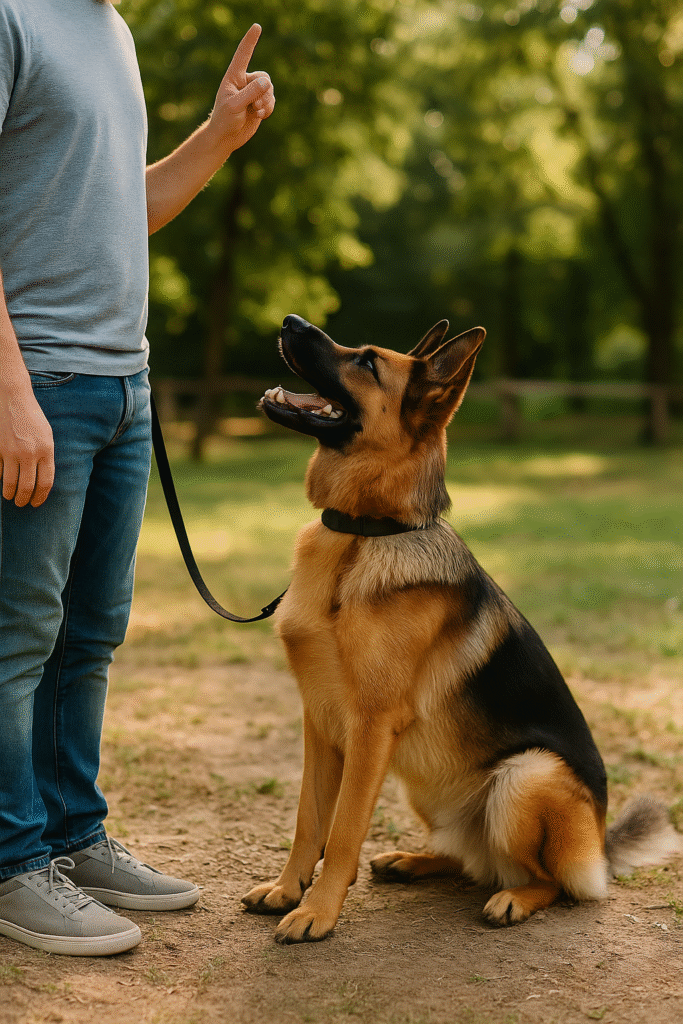German Shepherd: Training, Temperament & Health Care Guide
The German Shepherd is one of the most intelligent, loyal, and versatile dog breeds in the world. From working alongside police and military units to becoming a loving family guardian, this breed has earned a reputation as both a protector and a loyal companion. If you’re considering adding a German Shepherd to your family or already have one, understanding their temperament, training needs, and health care requirements is essential to ensure they thrive. In this guide, we’ll dive deep into what makes German Shepherds so special and how you can provide the best care for them.
Temperament of German Shepherds
German Shepherds are known for their courage, intelligence, and loyalty. They bond closely with their families and are naturally protective, making them excellent watchdogs. Unlike some breeds that are overly friendly with strangers, German Shepherds tend to be reserved until they know someone can be trusted. This makes early socialization a key part of raising a balanced Shepherd.
These dogs are also highly adaptable. Whether they’re living in a busy household with children or working in demanding roles like search-and-rescue, they thrive when given a sense of purpose. Their protective nature means they may sometimes become territorial, but with proper training and boundaries, they make wonderful family companions who are gentle with children and affectionate with their owners.
Training a German Shepherd
Because German Shepherds are such an intelligent breed, training them can be both rewarding and challenging. They learn quickly, but they also require consistent leadership to prevent them from developing unwanted behaviors. Positive reinforcement methods — using treats, toys, and praise — work best with Shepherds, as harsh training can damage their trust and make them fearful.
One important aspect is mental stimulation. German Shepherds are working dogs and get bored easily if they don’t have tasks or challenges. Puzzle toys, advanced obedience training, and even agility exercises can help keep them engaged. A bored Shepherd may develop destructive behaviors such as chewing furniture or excessive barking.
If you’re struggling with excessive barking, you can also check our full guide on How to Stop Dog Barking for practical tips.

Exercise Needs
This breed has high energy levels. Daily exercise of at least 1–2 hours is crucial to keeping them healthy and preventing behavior issues. Long walks, running sessions, or playtime in a secure yard are essential for physical health. Shepherds also love structured activities like fetch, agility training, or even canine sports, where they can channel their natural drive.
Families should understand that a German Shepherd is not a “couch dog.” They thrive when they are active participants in their owner’s life. If you live an active lifestyle, hiking or jogging with your Shepherd can be a great bonding experience.

Health Care for German Shepherds
While generally healthy, German Shepherds are prone to certain breed-specific conditions. The most common is hip dysplasia, a genetic condition that affects the hip joints and can cause pain or mobility issues. Regular vet check-ups, weight management, and joint supplements can help reduce the risk.
Shepherds are also prone to digestive issues, skin allergies, and degenerative myelopathy (a neurological disease). Maintaining a balanced diet rich in protein and omega-3 fatty acids can support their health. For more information on common dog skin conditions, check our guide on Common Dog Skin Problems & Solutions.
Dental health is another area owners should never overlook. Regular tooth brushing, dental chews, and vet cleanings are vital to prevent gum disease and tooth loss. For a more detailed guide, see our upcoming article on Pet Dental Care.

Nutrition Tips
Feeding your German Shepherd a high-quality, protein-rich diet is key to supporting their active lifestyle. Avoid cheap dog foods that contain fillers like corn or soy, which can cause allergies or digestive issues. Instead, opt for brands with whole meat sources, healthy grains, or grain-free options if needed.
Overfeeding is a common issue. Because Shepherds are large dogs, obesity can put unnecessary strain on their joints. For more insights, check out our detailed guide on Preventing Obesity in Pets.
FAQs About German Shepherds
Are German Shepherds good with kids?
Yes, with proper socialization, they are gentle and protective around children. Their loyalty makes them excellent family dogs.
Can German Shepherds live in apartments?
While it’s possible, they require significant daily exercise and mental stimulation. Without it, apartment living can lead to frustration and behavioral problems.
Do German Shepherds shed a lot?
Yes — they are often called “German Shedders.” Regular brushing (2–3 times a week) helps control loose fur and keeps their coat healthy.
Conclusion
German Shepherds are loyal, intelligent, and versatile companions who thrive when given structure, training, and love. They’re not just pets but family members who will stand by your side in every situation. By understanding their temperament, providing proper training, and ensuring good health care, you can help your Shepherd live a long, happy, and fulfilling life. If you’re ready for an active, loyal, and protective companion, the German Shepherd might be the perfect match for you.

